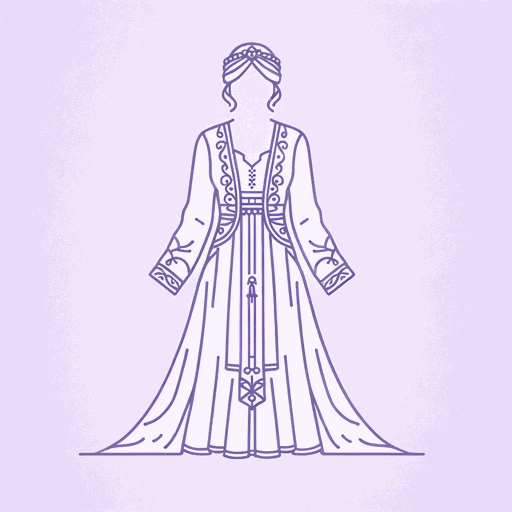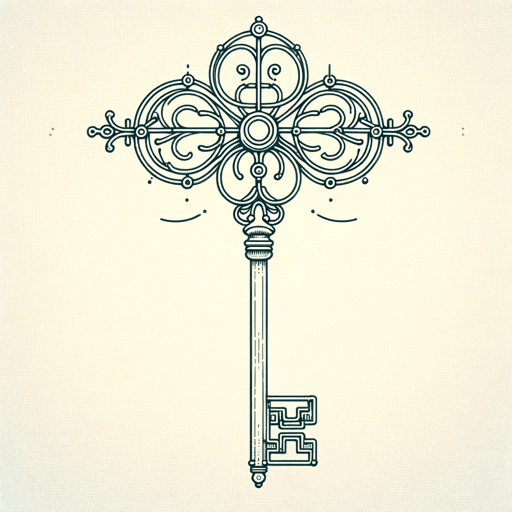37 pages • 1 hour read
Daniel DefoeRoxana: The Fortunate Mistress
Fiction | Novel | Adult | Published in 1724A modern alternative to SparkNotes and CliffsNotes, SuperSummary offers high-quality Study Guides with detailed chapter summaries and analysis of major themes, characters, and more.
Summary and Study Guide
Overview
Originally printed in 1724, Roxana: The Fortunate Mistress was published anonymously and only later attributed to Daniel Defoe, author of Robinson Crusoe and Moll Flanders. The novel appears as if it is a biography, which was a common trope amongst 18th-century fiction as it was thought to appeal more to the public if readers believed the story was based on true events in a person’s life. The novel has an episodic quality to it and is not necessarily strung together by one event leading directly into another—although, there is an overarching plot of Roxana’s moral deterioration.
Plot Summary
Roxana is the first-person testament of a “Beautiful Lady” who goes from being a virtuous woman to the deceptive mistress of a sequence of wealthy men. The daughter of French Huguenot Protestants, Roxana moves from her childhood home of Poictiers in France to London at the age of 10. Her father is a wealthy merchant who marries her off to a brewer when she turns 15. Roxana’s husband is handsome and gives her five children, but he is incompetent in business, and the family grows increasingly poor. One day, the husband goes out hunting and abandons his family. Alone and burdened with five young children, Roxana entreats an Uncle in Law to look after her offspring, while she holds on to her loyal maid, Amy. The Landlord, whom Roxana has not been able to pay for months, takes pity of them and begins offering Roxana meals, entertainment, and a refurbished home. In exchange for these gifts, Roxana agrees to become the Landlord’s mistress and enjoys the economic benefits of wifehood without the restrictions. Their liberal domestic arrangement produces a daughter for Amy and a son for Roxana.
Roxana and the Landlord go on a journey to France. There, the Landlord is robbed and stabbed with a sword. In Paris, Roxana poses as his widow and she is soon courted by a French Prince who takes pity on her and marvels at her beauty. The Prince keeps Roxana as his mistress, and together they enjoy a life of luxury and overseas adventures in Italy. Roxana relishes her travels, learning the Italian language, and encountering the Turkish costume and dances that will later make her infamous. When the Prince’s legitimate wife dies, he decides to live a life of virtue, forsaking his mistress. Roxana resolves to return to England with all the fortune she has amassed. After much negotiation, a Dutch merchant handles the affair for her, saying that she must go to England via Holland to retain her riches. In Rotterdam, she again comes across the Dutch merchant. The two grow familiar and he entreats her to bed him. When she falls pregnant with his child, he asks her to marry him. Roxana refuses, saying that she would lose control of her finances if she were to marry him.
Convinced that she is still young, beautiful, and wealthy, she moves to England, where she and Amy find a home in the most fashionable part of town. There, Roxana hosts lavish parties, dances for visitors in her Turkish costume, and earns the nickname of Roxana, which eclipses her Christian name, Susan. She becomes the mistress of a Lord, who sets her and Amy up in a country house. However, tiring of this lifestyle, Roxana procures Amy to find them an alternative arrangement where no one will know her identity or former sins. Amy complies and finds them a home with a family of Quakers.
While Roxana appreciates the retreat and the lack of harassment from unwanted suitors, she misses men’s devoted admiration. She thinks about contacting the Dutchman and sends Amy to Paris to look for him. However, by a stroke of fate, the Dutchman has been in England looking for Roxana, and they cross paths. She regains some of her intimacy with the Dutchman, whilst Amy tempts her with the morsel that the Prince is still alive and perhaps in search of a princess. Roxana entertains abandoning the Dutchman for the Prince, but this plan falls through when the Prince has a change of heart owing to the return of his moral conscience.
Roxana and the Dutchman marry in a quiet ceremony. However, when they are on board the ship to Holland, Roxana is surprised by the apparition of her legitimate daughter, who recognizes her as the woman who wore a Turkish costume and conducted infamous entertainments in her London home. Roxana is terrified that she may be exposed and leaves the ship on the pretext that she is pregnant so that she can hide from her daughter.
The daughter is so persistent in tracking her down that Amy, who is the agent tasked with dealing with her, takes matters into her own hands. She attempts to pay the daughter off in a location where she is murdered for her newfound riches. Roxana is remorseful at her daughter’s death and accuses Amy of murdering her. However, neither Roxana nor Amy are publicly recognized for their crimes. The impression that they have gotten away with their crimes enshrines the ending with moral ambiguity.
Related Titles
By Daniel Defoe




